Search the Special Collections and Archives Portal
Search Results

Transcript of interview with Leandrew Winston by Claytee D. White, August 03, 2016
Date
Archival Collection
Description
Leandrew Winston is best known for his work in public broadcasting. He was born in Grady, Arkansas where he lived on a farm with his family. He migrated first to California and then to Las Vegas. Once in the city, Winston became a well-connected figure in the African American community and often tells stories about his experiences with police brutality. He chose to work in public broadcasting and in 1971 became the first African American to work at PBS at Channel 10. He started hosting Ten on the Black Side, his own television news talk show, in 1975 and later became the Minority Affairs Director at Channel 10. In 1984, Winston created a documentary for PBS called The Road to Las Vegas, a Black Perspective. He returned to school in 1987 and received his MBA from National University. Upon returning to Las Vegas, he helped found KNPR. Winston left Channel 10 and took a job with KCEP in 2001.
Text

Las Vegas African American Community Conversations, Part 2: Education, Economy and Integration: video
Date
Archival Collection
Description
The Las Vegas African American Community Conversations is a four part, one hour round table conversation with local Las Vegans. They share their powerful stories and great history, with topics ranging from “Migration, Civil Rights, Education, Church, Entertainment and the Early Legal Community”. Part Two: A conversation about “Education, Economy and Integration” MODERATOR- Sonya Horsford Ed.D. PANELISTS- Dr. Esther Langston (Professor UNLV) Verlia Davis-Hoggard (Director of Clark County Social Services-Retired) Idan M. Gaines (Regional Representative for Senator Harry Reid) Dr. Linda Young (President-CCSD Board of Trustees)
Moving Image
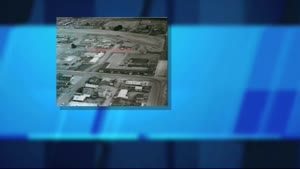
Las Vegas African American Community Conversations, Part 3: Civil Rights and Entertainment: video
Date
Archival Collection
Description
The Las Vegas African American Community Conversations is a four part, one hour round table conversation with local Las Vegans. They share their powerful stories and great history, with topics ranging from “Migration, Civil Rights, Education, Church, Entertainment and the Early Legal Community”. Part Three: A conversation about ” Civil Rights and Entertainment” MODERATOR- Claytee D. White (Director-Oral History Research Center) PANELISTS- Lonnie G Wright (College Professor/Business Owner) LaVerne C. Ligon (Director- Simba Talent Development Center Inc.) Walter Mason (Director-IRA Aldridge Theater) Leonard Pock Jr. (Retired Stagehand) B.J. Thomas (Retired Stagehand)
Moving Image
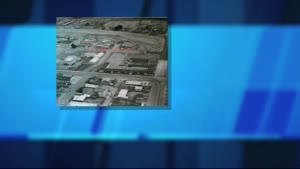
Las Vegas African American Community Conversations, Part 4: Early African American Legal Community: video
Date
Archival Collection
Description
The Las Vegas African American Community Conversations is a four part, one hour round table conversation with local Las Vegans. They share their powerful stories and great history, with topics ranging from “Migration, Civil Rights, Education, Church, Entertainment and the Early Legal Community”. Part Four: A conversation about “ Early African American Legal Community” MODERATOR- Rachel Anderson (Professor-UNLV Boyd School of Law) PANELISTS- Michael L. Douglas (Justice-Supreme Court of Nevada) Karen Bennett (Justice- Las Vegas Justice Court) Booker Evans (Greenberg Traurig, LLP) John R. Bailey ( Attorney/Managing Partner Bailey Kennedy) Timothy C. Williams (Justice-District Court)
Moving Image
Audio recording clip from the second interview with Senator Joe Neal by Claytee D. White, February 7, 2006
Date
Archival Collection
Description
Part of an interview with Senator Joe Neal by Claytee White on February 7, 2006. Neal discusses his early work in the Nevada Legislature, including his support for restoring rights to felons and his opposition to capital punishment.
Sound
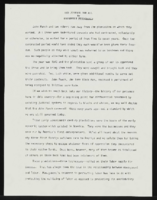
"And Justice for All": article draft by Roosevelt Fitzgerald
Date
Archival Collection
Description
From the Roosevelt Fitzgerald Professional Papers (MS-01082) -- Drafts for the Las Vegas Sentinel Voice file. On Black individuals being suspects and targets.
Text

Transcript of Interview with Barbara Kirkland
Date
Archival Collection
Description
On a sunny day in 1946, the train from Shreveport, Louisiana, stopped at The Plaza hotel in downtown Las Vegas like it always did. But on this particular day, Atha Toliver and her only child, twelve-year-old Barbara, stepped off the train and onto the dusty Western street of Fremont. Narrator Barbara Bates Kirkland recalls that event and living in Las Vegas for most of the next seven decades during this 2004 interview. Like many others who migrated from the South, Barbara Kirkland’s mother would find employment as a maid. A friend who already lived in Las Vegas had told her of the good paying jobs as private maid. So Atha who was determined that her daughter would get an education and a finer future saw this as her opportunity to achieve this for her daughter. Later, the entrepreneurial and creative mother opened Eva’s Flower Basket, a floral shop that Barbara operates in her retirement from teaching. Barbara returned to Louisiana for her senior year in high school, attended Southern University in Baton Rouge, and then returned to Las Vegas to teach first grade at Westside School. Barbara was active in the community, was a founding member of Les Femmes Douze, involved with Zion United Methodist Church and was friends with many of the early African American community leaders at the time. She talks about these, describes various neighborhoods where she lived and about raising her own two children in Las Vegas. Barbara was a founding member of Les Femmes Douze. AKA/Akateens.
Text
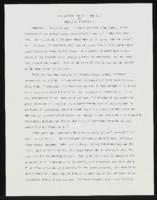
"And Justice for All: Part III": article draft by Roosevelt Fitzgerald
Date
Archival Collection
Description
From the Roosevelt Fitzgerald Professional Papers (MS-01082) -- Drafts for the Las Vegas Sentinel Voice file. On law enforcement mistreatment/discrimination Mexican Americans.
Text
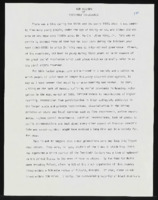
"Our History": article draft by Roosevelt Fitzgerald
Date
Archival Collection
Description
From the Roosevelt Fitzgerald Professional Papers (MS-01082) -- Drafts for the Las Vegas Sentinel Voice file. On the need for more Black history courses.
Text
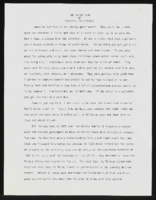
"The Sunset Kid": article draft by Roosevelt Fitzgerald
Date
Archival Collection
Description
From the Roosevelt Fitzgerald Professional Papers (MS-01082) -- Drafts for the Las Vegas Sentinel Voice file. On unacknowledged Black cowboys and soldiers.
Text
